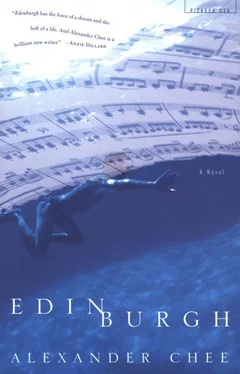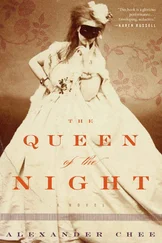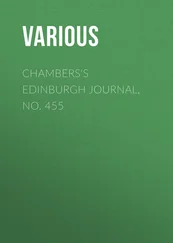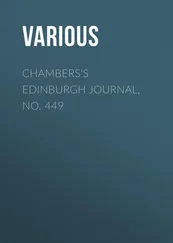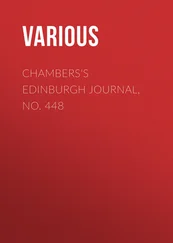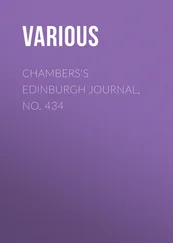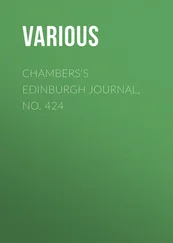My grandmother returns. Most important animal in Korea is here, she says, and taps my head with a kiss. This one, and then she laughs, returning to the kitchen to wait while we eat.
I’m there to do a pilgrimage for my grandfather’s sisters. Our family shrine is on Moolsan-do, an island off the coast of Korea where my family has been for generations, and so after the visit in Seoul, where my relatives complain of how thin I am, they stick us into a wide train. We take the train until the rails stop and then a cab until the roads stop and then a ferry, out to the middle of a sea so blue and beautiful it looks like God’s own tear.
Moolsan-do means water mountain. In my imagination, before my arrival, I think of Moolsan-do as being like a wave, towering in the sea, held in place forever by some arcane force, and as we arrive, the island does look like a wave at first, rising against the horizon as we approach. Up close, the real Moolsan-do looks like a mountain submerged by flood, with only a few beaches, most of the coast rocky and dark. The ferry’s in no danger of running aground, the water is deep. There’s one taxi, my grandfather tells me, as the ferry gets closer. Two teahouses, he adds, and one hotel, and 200 people, me related to approximately 110 of them. The other ninety being, by his guess, “new arrivals.” He laughs as he says this. I step one leg off the boat onto the pier and feel the steep rock of the boat as I do so. The wind pulls on me. I lean into it, and steady my grandparents as they disembark. They smile at each other as they slip past me, getting their bearings. They look like they have a secret, as if they’re being welcomed by spirits hidden in the wind pressing at us, haunted for a moment, but by happiness. I step fully off the ferry’s plank, and the tanned sailors grin and run on board to remove the cargo of baggage and food. I follow my grandparents, taking in the town at one glance down the short street by the pier. I count off everything my grandfather mentioned.
As they have regularly throughout the trip, my grandparents regard me then with furtive glances that end in a smile for me and a nod. My grandfather knows about hauntings, it occurs to me now. Here was where he knew his sisters, here was what he remembered, every day, in his Imperial school, as the Japanese grammar spread inside him, as he learned the language of the people who took his sisters and destroyed them. All his thoughts come to him in Japanese first, his dreams in Japanese also. As they cross the wooden pier, as he tenderly helps my grandmother into the green taxi, as he laughs with the cab driver, I think of how every single thing he says in Korean comes across a pause where the Japanese is stilled and the Korean brought forward. Each part of speech a rescue.
Sunlight around my grandfather now as he waves to me, where I stand among my thoughts. Come, come, he says. Come meet driver.
I come toward him, shake the driver’s hand, and we set out for the temple at the island’s other side. He knows, the thought comes to me. He knows I cannot talk. He knows I am trying to learn how to talk. My tongue heavy from death, my words scattering off my ghosts, who can only watch, mute at what I am trying to do as everything I try to say fails.
Driver says you are very handsome, my grandfather says, laughing. Say you look like Zhe.
I meet the driver’s eye in the rearview mirror, where it waits for me, and I smile.
At the polished stone temple, we kneel and pray, leave food, enough for a small beautiful lunch, for the dead. We take turns and throw soju for them. I trace the characters with a finger, unable to read them. There’s no mounds for the sisters. My grandfather doesn’t know the day they died, only the day they were taken. He doesn’t have a single grave. Only Moolsan-do. When I take my turn to pray, I ask to be helped. And hope that prayers can arrive translated.
Peter’s the one that burned. Zach was the one who pulled the trigger. Still, I feel like the bullet, the fire, like I tore his head open. I set the fire. Sometimes the scattered thoughts of their deaths run like a jagged red seam of fire inside me and I burn from the inside out, like a lightning-struck tree: the outside whole, the inside, that carried the lightning’s charge, a coal. At other times, I feel empty, transparent, a child of the wind. Touching nothing, nothing touching me. And alternating between these states, with no warning as to when one will turn into the other.
They’re gone, I tell the sea. Nothing comes back to me.
On the ferry ride back, off the island, the sun lights up the hair of two little girls in front of me enough for me to see, sure enough, the red threads there in their hair.
Years later on streets in New York, women bustle by me, in fox coats. I want to ask these women, do you ever, in that coat, think you can fly? Do you ever feel, wearing that coat, the thrum of a leg about to let fly?
On the bus back from the train from Moolsan-do, an old man, dressed in the loose linen suit of a retired man, seated in front of me, raises his lighter to my arm and lights it. At first I start to see a faint flame rise from the loose thread there at my side. He smiles at me. It’s like a wick. The thread burns out and off. The fire goes out.
Later, I get off the bus. My grandmother looks at me like an owl looks at a mouse. She kisses me, the owl’s wet feather. Skinny, she says. Get you home.
At my great-aunt’s house she sets out plate after plate of food. The traditional dinner and then more plates: fried Spam, sliced. Fried eggs. A bag of potato chips. You like, my great-aunt says. Grandmother get for you. My grandfather waits until the food is all out and then approaches the table. The driver paces in the garden, smoking.
My great-aunt says something to him in Korean as she pours his water. He looks at her and raises his eyebrow. He says something to her gingham-covered back as she passes back into the kitchen, to sit at her table there. Your granmi, he says. She say we call someone to come look for you. Your ghost missing, she says. We call tomorrow. Ghost-singer. He shouts to my grandmother, turns back to me, and says, Terrible singer, for ghosts. Bad music.
10
The Mudang arrives in the morning, a laughing woman with a man’s stride, a man’s way of leaning back from her hips. Who took your ghost, she says to me, her voice deep, almost sounding like it came from inside me. She plucks at the front of her khaki trousers, hitches her linen sleeves up.
I don’t know, I say.
We find it, she says. And then she wanders the house. Up to the third floor, full of old furniture, and then down again. She walks the whole house. My grandfather has gone out to his favorite place, the bar at 8th Army, the officer’s club. My grandmother paces in the garden.
With no warning, the mudang starts singing. Her voice now is unexpectedly high in tone, almost flutelike, and differs so sharply from her speaking voice that I watch, as if what made the difference were something I could see. She sings, and begins to step forward, in a slow dance, punctuated by her clapping hands. In my grandparent’s green courtyard, my grandmother lowers her head, and the mudang sings.
She draws herself up short and says to me, go to your room. Wait there for me. And then she begins her song again.
In my room, I wait. On my bed, made up in thin cotton sheets, a Western bed they’ve had in this guest room since before it was popular to have them in Korea. The song reaches me through the open windows. I can feel the sweat glaze me, and I lie down for a breeze that passes in through the window with the song. My eyes close.
Two eyes glow at me in that dark, green-gold, irisless. Hello, a voice says. Miss me?
No, I say.
They brought me here for you.
Читать дальше
